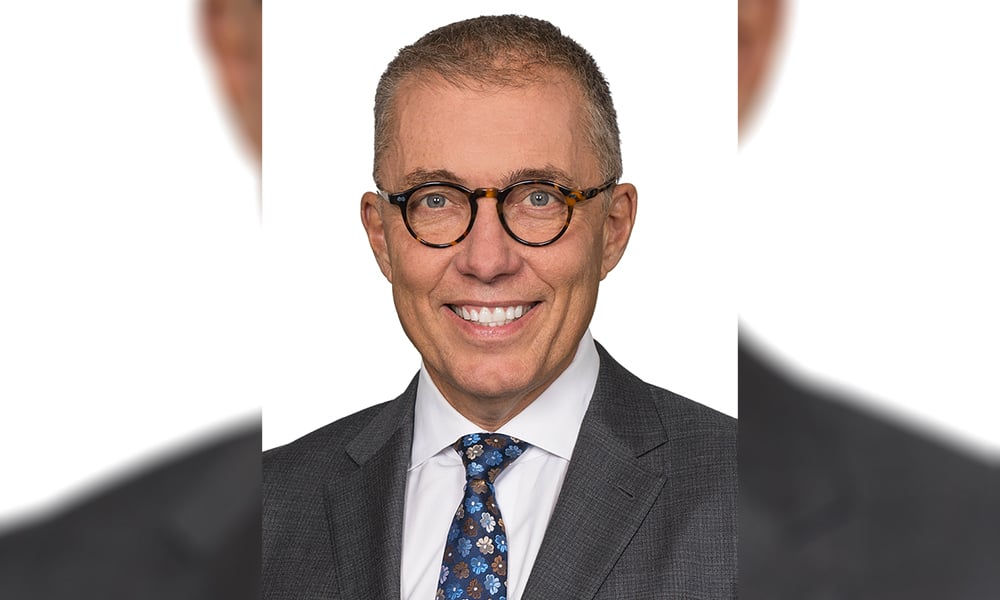
Two of Ontario’s top class action lawyers explain the scope and strategies around class actions emerging from the pandemic

Two Ontario class action lawyers say that while the range and scope of class action suits emerging out of the COVID-19 pandemic will be huge, lawyers need to exercise caution and prudence rather than running in headfirst.
Michael Eizenga, partner and co-head of class actions at Bennet Jones LLP, explained some of the strategies defence lawyers are likely to use in pandemic-related class actions. Michael Peerless, partner at McKenzie Lake Lawyers LLP, spoke to how plaintiff’s lawyers can pursue successful class actions, highlighting the competition for cases that may emerge between firms. They both say that lawyers should be looking first to the basic principles of litigation as they pursue these cases.
“Class actions are no different from any other lawsuit, but because of their scale, class actions often involve big policy questions,” Eizenga says. “From the defendant’s perspective, is I try to look at the traditional legal principles that are usually flexible enough to address big policy matters. Their application just becomes more challenging in the current context.”
Eizenga says that in cases around the standard of care, traditional tort principles allow lawyers to apply a flexible risk-benefit analysis around the knowledge available at a time when a certain product hit the market, for example. In the COVID-19 context, he says rapidly changing circumstances make determining the information available in a particular moment more difficult. Nevertheless, he says lawyers need to take a breath, focus in on decisions made in the moment, ask what information was available at a point in time, and work out whether the players acted appropriately.
The other complicating factor Eizenga sees in pandemic-related class actions is the role of government. Citing the spate of class actions already ongoing in the U.S., Eizenga says the role governments have played in lockdowns and business shutdowns will open up wider policy questions as to who is liable for arising issues. Government directives, and organizational compliance with those new directives, are another issue that will need to be considered by lawyers on the defence and plaintiff’s side of emerging class actions. Eizenga says, though, that despite these significant complicating factors, the basic tort test, such as a question of violating the standard of care, will still govern the principle of these cases.
Michael Peerless sees far more than just medical negligence cases emerging from the pandemic, though. The specialist in class action suits for plaintiffs also cited the U.S. example saying that while class actions from long-term care homes are very likely, some unexpected areas may likely be made subject to class actions of their own.
“It’s the nature of a pandemic but there are such a broad range of cases from private school tuition, to nursing homes to infections on cruise ships to hotel and airline refunds of coupons instead of cash to sporting events like the Boston Marathon, [which is not refunding its participants.],” Peerless says. “There are several class actions that have started in the United States against the government of China for allegedly hiding the data. There are several cases in the United States against Fox News for spreading misinformation.
“There are cases against insurance companies who are refusing to pay out on business interruption policies in Canada and the US. There are already threatened cases about privacy issues if the government's trying to do contact tracing. There are shareholder claims for companies that didn't have pandemic preparedness plans. There are all sorts of employment law claims. There are cases against government applications of family law, because kids have been locked down with one parent and they can't get to see the other parent.”
With such a range of cases emerging from the pandemic, Peerless says plaintiff’s lawyers will need to manage collaboration with one another. He says that many lawyers may have to deal with carriage motions as the courts decide which team should carry a class action forward. In those motions, Peerless says lawyers will need to show the courts that they have the legal acumen and the resources to take on a big, well-funded defendant for a long period of time. He says that plaintiff’s firms should consider teaming up on these cases, sharing some of the resource burden and workload.
On the whole, Peerless says plaintiff’s lawyers don’t need to rush into class action suits. While many suits are already emerging, he says that a largely shut-down court system and an ongoing crisis should be enough for lawyers to pump the breaks.
“I resist the lights and sirens impulse,” Peerless says. “I don't consider this to be an emergency. I don't need to start any cases yet. I don't know enough about the facts yet to even think about cases to start really, until I know more I won't.”
Eizenga says that while the pandemic will result in a vast array of class actions, litigators can’t treat these actions as a kind of panacea for the issues the pandemic has exposed.
“It's pretty clear to me that a lot of us who practice in the legal system are going to have to be humble,” Eizenga says. “The private litigation system can do many things, it can't do everything. The legal system will not be able to provide all the answers that are needed here and it's clear to me there will need to be public involvement in addressing the problems for the future.”